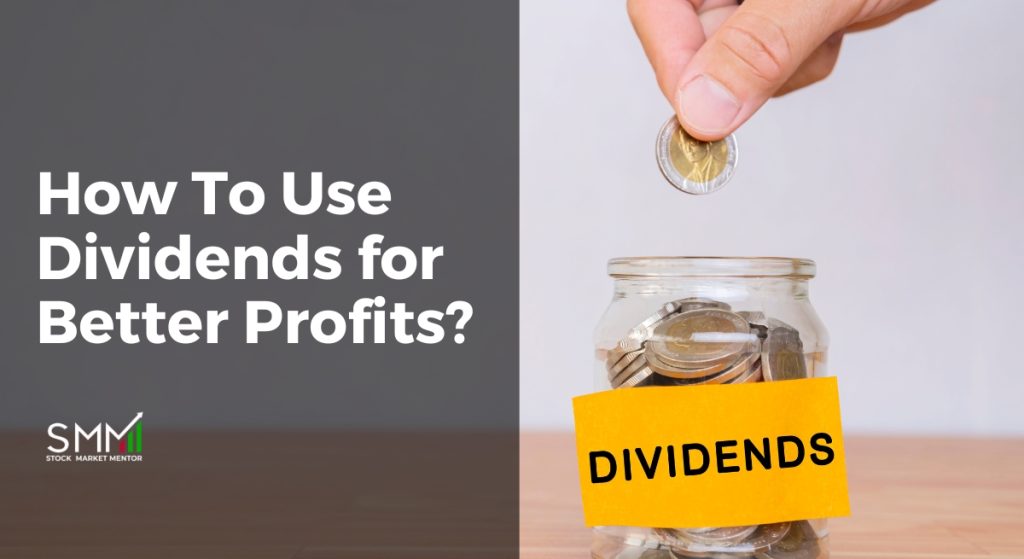When you step into the investment world, you will have a lot of doubts about the words we use in the Trading & stock market. A dividend is one amount them & more likeliest word by investors. What are Dividend? the most common question you get when you start exploring this stock market world.
If you are a new admission to stock trading or a beginner in trading, then this blog helps you understand What are dividends. and how to use it for better profits. Read completely to understand dividends before stepping into trading.
Table of Contents
What Are Dividends?
A percentage of a business’s profits given to shareholders is known as dividends.
Usually, dividends are given out in cash, but they can also be paid out as stock dividends, which are payments in the form of extra shares of stock. One significant way investors receive consistent income from their investments is through dividends. Together with capital gains (an increase in the stock price), they play an essential role in determining the overall return on an investment in a stock.
Stocks that pay dividends are particularly well-liked by investors who want a reliable source of income. Dividends, however, can indicate a company’s profitability and overall health in addition to providing income. Regular dividend payers frequently have steady cash flows, a safer investment than companies that do not pay dividends.
The Indian stock market offers various possibilities for investors seeking dividend income. The monthly dividend payments made to their shareholders by numerous sizable, well-established businesses attract income-seeking investors. A consistent income stream can be obtained by investing in high-dividend companies, which can be reinvested over time to increase wealth. But remember that there are specific hazards involved with dividend investing, so there are better options than high-dividend companies.
What Are The Types of Dividend?
5 Main Types of Dividends For A Beginner to Understand
- Cash Dividends: They are precisely what they sound like you receive payment for your cash investment.
- Stock Dividends: This one should also go without saying. Your stocks are replaced with cash in this type of dividend. You now possess a little more significant portion of the business than earlier.
- DRIPs: DRIPs is an awful acronym for dividend reinvestment plans. With DRIPs, you can reinvest your cash dividend into the company’s stock, typically at a discount.
- Special Dividends: A dividend of this type is unpredictable. If a corporation has excess profits that aren’t allocated for any other purpose, it may choose to provide special dividends. Unlike different payouts, these are one-time events that don’t happen regularly.
- Preferred dividends: This is another unique type of dividend. A preferred dividend is paid to owners of preferred stock. This type of stock differs from common stock in that with preferred stock; shareholders don’t have any voting rights. Preferred dividends follow a payout schedule similar to cash or stock dividends, but they’re usually a fixed amount rather than a fluctuating number
When are dividends paid?
Most firms make quarterly dividend payments; however, others pay out monthly, biannually, or annually. The corporation formally announces its next dividend when the board of directors approves the payout amount. The declaration date is this particular day. The day on which you must be a shareholder in the company to receive the declared dividend payment is called the record date, which the company also indicates on the declaration date.
The first-day stock buyers are not entitled to receive the declared dividend, known as the ex-dividend date, determined by establishing the record date. One working day before the record date is the ex-dividend date.
The payment date is when the dividend payment is disbursed to shareholders. If a shareholder receives a dividend by mail, dividend checks are mailed on the payment date.
A Powerful Source of Passive Income - Dividend
How Does Dividend Helps You Generate Passive Income & Increase Profits?
Steady Income Stream
One advantage of dividends is that they give investors a steady flow of passive income. Dividends give investors a regular, direct payment instead of waiting to sell equities at a profit. People who need a constant source of income, such as retirees or those wishing to augment their incomes, may find this to be of particular help. When the stock market is experiencing a downturn and prices are erratic and fluctuating, dividends can offer stability.
Compound Returns
Through compounding, dividends can boost your investment returns over time. This compounding impact can be capitalized upon when dividends are reinvested by purchasing additional shares of the same stock or other investments. Dividends increase with the number of shares you own; thus, dividends increase dividends even further. In the long term, this compounding impact can significantly increase your returns and help you accumulate wealth more quickly.
Protection Against Market Volatility
During market volatility, dividend-paying companies can serve as a safety net. Stock prices may decline along the market, causing investors to suffer brief losses. Nevertheless, by offering a consistent income stream, the dividends earned can assist in offsetting these losses. Dividends can lessen the impact of a temporary decline in the stock price and increase your overall gains. You can weather short-term market swings and focus on your long-term objectives with this revenue-generating function.
Inflation Hedge
Your investment may be shielded from the effects of inflation by dividends. The purchasing power of money decreases with inflation over time, which may harm fixed-income investments. Dividends, on the other hand, may rise over time and eventually outpace inflation rates. Businesses that consistently increase their dividends do so to remain competitive and keep up with growing expenses. You can protect yourself against the damaging impacts of inflation and maintain the actual value of your income by making dividend-paying stock investments. Click to Explore Our Stock Market Courses
Indicators of Financial Health
A company’s financial health can be inferred from its dividend policy. Recurring dividend payments demonstrate a company’s ability to provide stable cash flow and profits. Since dividend payments are often made from a company’s earnings, a consistent dividend payment suggests that it is profitable enough to pay its shareholders. You may determine a company’s level of financial stability and management confidence in its prospects by observing its dividend history and payout ratio. Explore – Stock Market Difficulties You Should Know
Conclusion
With this understanding of Dividends, you can make better decisions on choosing the right company that yields more dividends, which helps you generate better income out of your investment. It is always advised to check with metrics like dividend yield & payout ratio for a better understanding of the company’s financials. Explore our courses here & choose the best one to dive deeper into the stock market.



